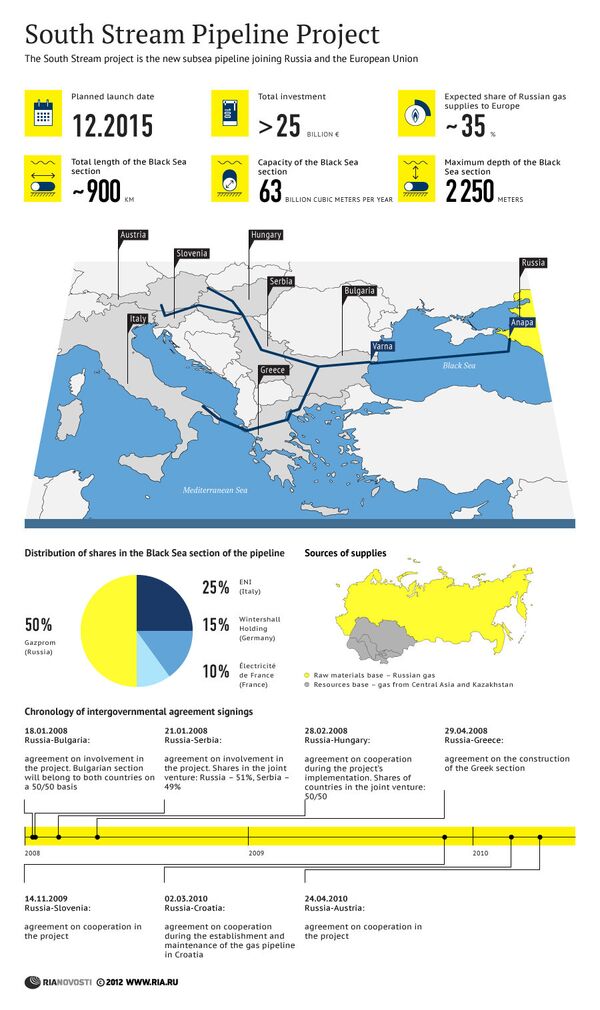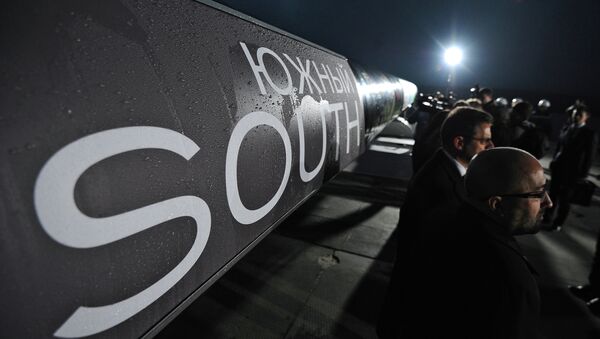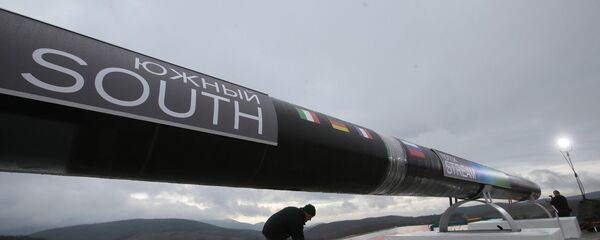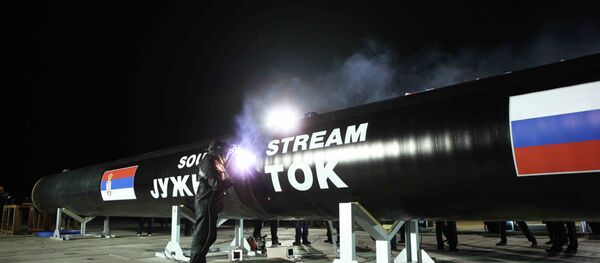WASHINGTON, December 3 (Sputnik) – Russia’s announcement of not being able to move forward with its South Stream gas pipeline is a consequence of the country’s behavior, and such repercussions to the country’s economy “will mount,” US National Security Adviser Susan Rice said Tuesday.
"The news that Russia has pulled back from its South Stream pipeline to southern Europe… is indicative of the mounting cost of that Russia is paying for its behavior,” Rice said. “As a result, a major project, which had been championed by Putin and the Russian government, is now not likely to materialize."
Rice said that the sanctions, imposed on Russia by the West, have made the country suffer significantly over the last year, and warned that if Moscow continued on with “illegal and destabilizing” actions, that consequences would intensify in the future.
"When you look at where the Russian economy is, it has suffered over the last year substantially as a result of sanctions and also as a result of declining oil prices and the combination is pretty powerful," Rice added.
The US security adviser added that economic sanctions are “imposing a significant cost on Russia for its actions and these are factors that [Russian President Vladimir] Putin has to take into account as he considers his future steps".
For the past several months the United States, the European Union and its allies have imposed a series of sanctions that target Russia’s banking, energy and defense sectors, accusing Moscow of being involved in the escalation of the crisis in Ukraine. Russia denies such allegations.
On Monday, Russian President Vladimir Putin announced that Russia would not proceed with the South Stream gas pipeline that was supposed to deliver gas to Europe without going through Ukraine. President Putin said that Moscow’s decision on the pipeline was a result of the European Commission’s position on the project.
The European Commission assumed a critical stance toward the project, claiming that it violated the EU Third Energy Package, which stipulates that pipelines in its member countries cannot belong to natural gas producers. Moscow insists that the construction of the pipeline does not contradict the regulations.
Relations between Moscow and the West deteriorated following Crimea's reunification with Russia in March. Accusing Moscow of interfering in Ukraine's internal affairs, the United States, the European Union and their allies introduced several rounds of sanctions targeting Russia's banking, defense and energy sectors. Moscow has repeatedly denied its involvement in the crisis.




